Every penny counts. Check out these 8 Ways To Save On Winter Home Bills, with tips like solar lights, opening the oven, and more.
For more ways to save, check out all of our frugal posts.
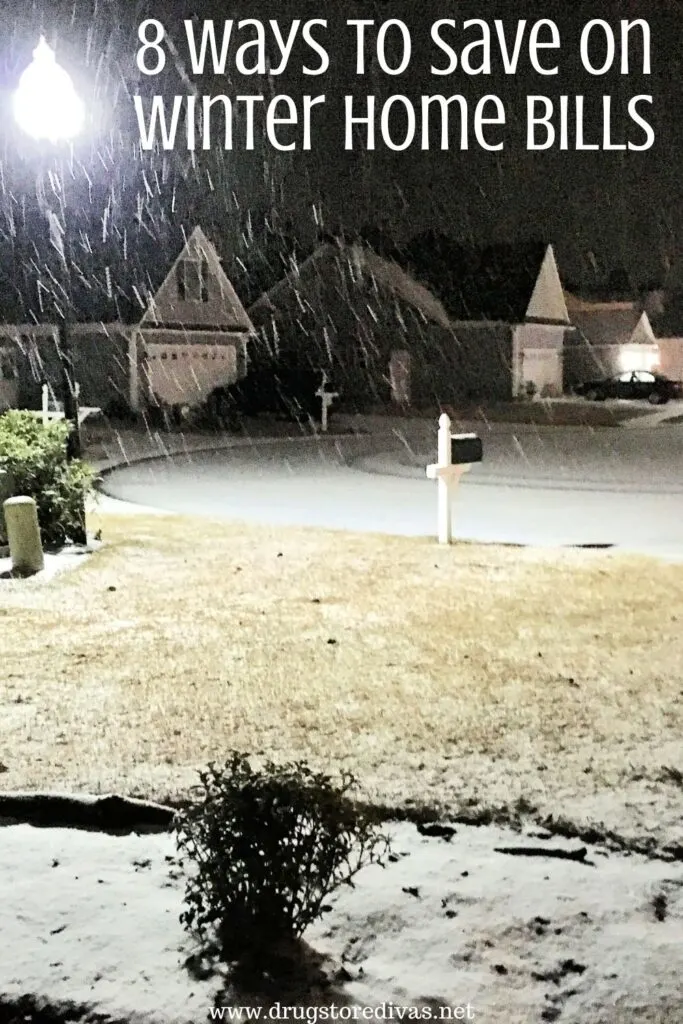
During the winter, life can get really expensive. Between Thanksgiving and Christmas, plus normal bills, it can feel like money is tight. But it doesn’t have to be that way. You can make a few small changes that add up in a big way, especially over time.
You can make adjustments in all aspects of your life, but we’re going to focus on things that are related to your home utility bills right now.
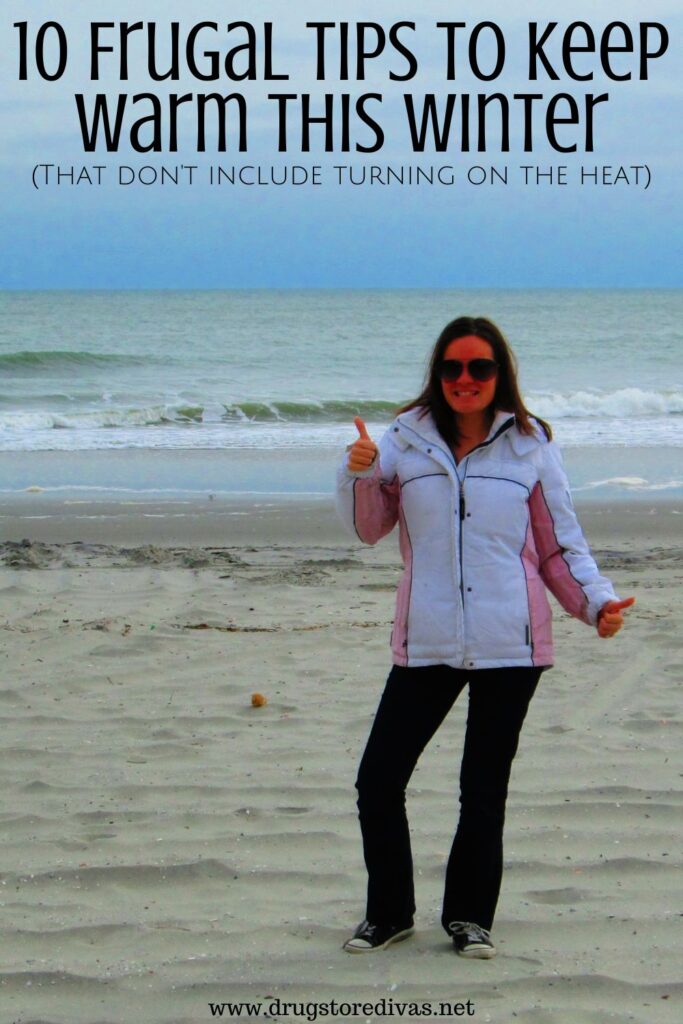

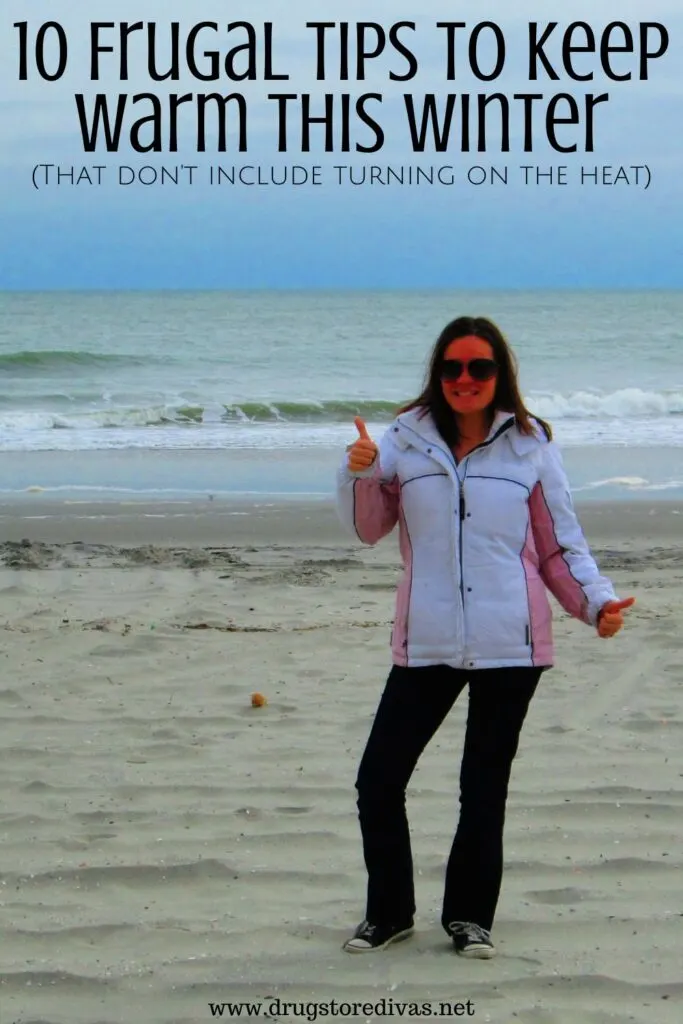

This post is definitely focused more on keeping your home warm. If you want to keep people warm this winter, check out our Tips To Keep Warm This Winter post.
8 Ways To Save On Winter Home Bills
Affiliate links are included in this post and Drugstore Divas may make a small commission if you use them.




Keep The Temperature Low
Heating your home is the biggest expensive you’ll encounter over the winter. Regardless of if you use electricity, gas, or a wood-burning fireplace to heat your home, the expense of heating your home adds up.
The best thing you can do is keep your temperature low.
Lower temperatures are actually better for your sleep, according to the Sleep Foundation amongst others, so that’s another benefit for keeping your thermostat a few degrees cooler while you’re sleeping.
If you have a thermostat, set it to a reasonable temperature. And don’t heat an empty home. Sure, it would be nice to keep your home toasty for when you walk in from work, but that doesn’t mean your thermostat has to be running all day. Program it to turn on with enough time to heat the home before you walk in but not to be on 24/7.
We actually have a smart thermostat and it can sense when we’re not home. So even if we have it set to be on at a certain time, if it senses we’re not there, it will turn off. That way, we’re not wasting heat and electricity. And if we go out, we can turn it off from an app from our phones. It’s super convenient.
If you have a multi-story home and each floor has its own programmable thermostat, you can set them to different temperatures at different times. Keeping an unoccupied floor cooler will definitely lower your heating bill.
Pro tip: Check with your utility provider to see if there are any additional savings for using a smart thermostat. Ours gives us a discount on our monthly bill for each smart thermostat we have (we have two).
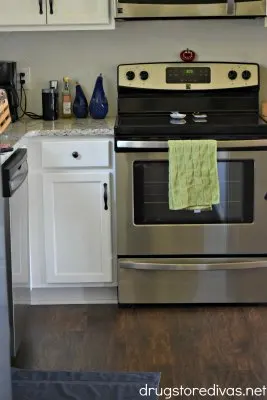



Open The Oven Door After You Cook
If you have small children or pets, you’ll have to be very careful with this tip. But if you cook in the oven, there will still be heat inside when you’re done. Instead of just letting the heat live and die inside the oven, let it heat up your home. Open the oven door when you’re done baking or cooking and the heat will dissipate into your home.
Now, don’t keep the oven open completely because you risk banging your legs into that oven door or having a pet jump inside. Instead, just open it a crack, an inch or so will do, and the heat will still escape, meaning you can use less electricity to heat your home at that time.
This is one of my favorite winter energy-saving tips because we cook every meal at home, so we’re already using the oven anyway. Since we’re already paying to use it to cook, we might as well use it for some extra home heating.
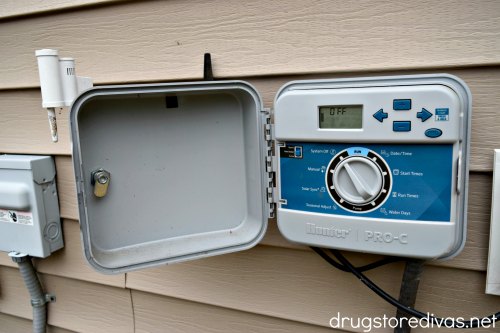

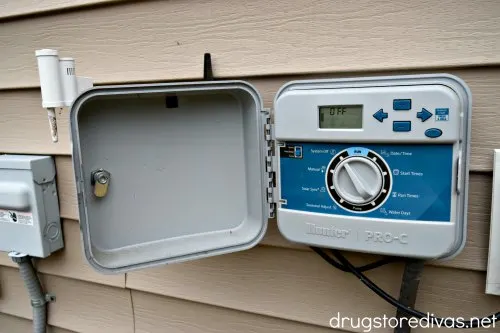

Turn Off Your Sprinkler System
During the spring and summer, you want to set your irrigation system so it waters your lawn and keeps it beautiful. During the winter months, though, you don’t need to worry about that. Turn your system off. You don’t want to be watering brown grass during the winter or, even worse, grass that is under snow.
You’ll save water, which means you’ll save on your water bill.
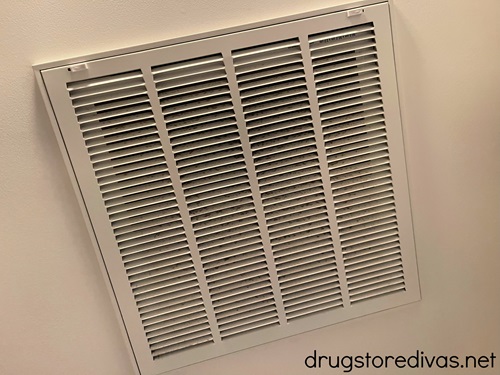

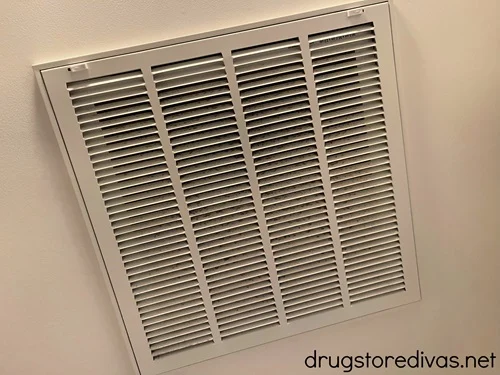

Replace Your Air Filters
At the beginning of each season, you should change your air filters. Those things get so dirty. And, the dirtier they are, the harder your HVAC system has to work. And the harder it has to work, the more energy it uses, resulting in a higher electricity bill.
During the winter, your HVAC system works very hard to heat your home. Don’t make it work harder because of a dirty filter. So replace them on a regular basis. And, while you’re up there, vacuum the vents as well.
Keeping with the same notion, clean out the filter in your dryer too. You need to clean that more often than your HVAC air filter. You should do it after every cycle. Lint will built up in your dryer’s filter, and that makes the dryer work harder, and, just as the HVAC filter, makes it use more energy — causing you a higher electric bill. The dryer tip isn’t a winter-specific tip, though, but still good to mention.




Use Energy-Efficient Christmas Lights
The first Christmas Pete and I were in North Carolina, I had two strings of Christmas lights on our street-facing windows. My favorite part of the day was turning on the lights in the windows and on our Christmas tree. I would leave them on until I was done working — at 3 am.
When we got our electric bill in January, it was so high. I actually called our electric company because I thought someone was siphoning our electricity somehow.
When I called, there was a recording that said there was heavy call volume. And then suggested that your energy use may be higher, which would impact your bill, if you had holiday lights going. I heard that and hung up. Yup, that was our issue.
So, in order to save in December but still have a beautifully decorated home, purchase energy-efficient Christmas lights. And set them on a timer as well, so you don’t accidentally leave them on all night.
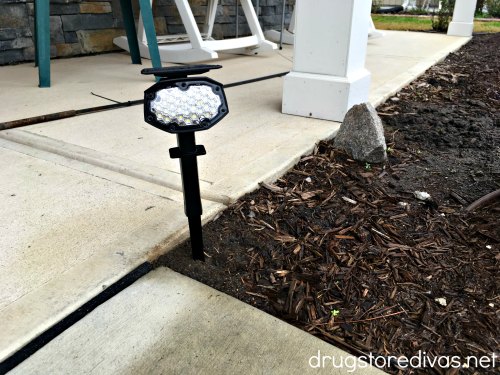

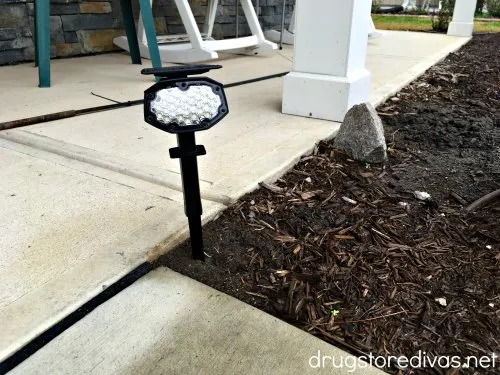

Use Solar Powered Walkway Lights
During the winter, it gets darker earlier. Which means you’ll want to turn your outdoor lights on earlier. And that, of course, increases your electric bill.
If you still want to illuminate your pathway so you’re not tripping when it’s dark out, pick up a few solar powered walkway lights. We have solar landscape spotlights and solar pathway lights, which are great. Now, we don’t have to turn on outdoor lights when we go out for the day and know we’re coming home when it’ll be dark.
Both sets of lights are solar powered, so we just leave them switched on all day long. The sun powers them, and then they start shining when it’s dark out. Plus, they’re waterproof, which is great if you live in a snowy area. You don’t have to worry about them getting snowed (or rained) on during the winter.
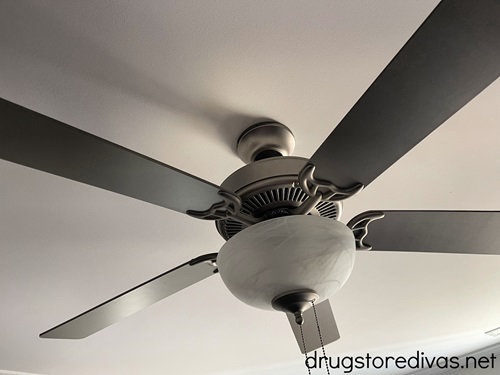

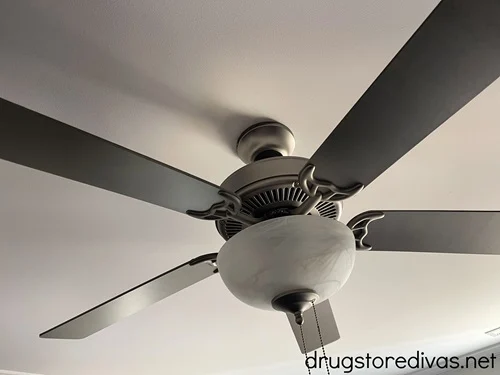

Reverse Your Ceiling Fans
So, here’s something for anyone who has replaced standard light fixtures with ceiling fans. You want your ceiling fans to turn clockwise, at a low speed, during the winter season. That way, your fan pushes hot air downward and pulls the cool air up. Pushing the warm air down will keep your warmer, so you won’t run to turn up the thermostat.
To check this, turn your fan on and stand under it. If you do not feel air, then it’s clockwise and set for winter.
During the summer season, you want to set the ceiling fan to run counterclockwise in order to push cool air down to the ground.
Use Outlet Plug Covers
You may have noticed drafts coming into your home through your electrical outlets, if your home isn’t insulated properly. You’ll notice this more in older homes than newer constructions. There’s a way to fix this with caulking, but that’s a bit tricky for a non-professional. A good idea for a regular homeowner to stop the draft is using outlet plug covers.
These plug covers are typically used in homes with small children to prevent the kids from sticking anything into the outlets and electrocuting themselves. Sure, they work to babyproof your house, but they also work to seal the outlet and keep any cold air from traveling in through them, so there’s less energy waste.
Don’t worry about sealing any outlets that are in interior walls, but put them in outlets on exterior walls. If you use the outlet quite a bit, don’t worry about it (because taking the outlet plug off often will be more of a pain than its worth), but definitely put these in outlets that you don’t use very often. Keeping the cold out means you won’t have to pay as much to keep the heat in.
In the same vein, we also have door draft stoppers that we put at the bottom of the door frame of all of our exterior doors. That helps minimize heat loss through the gap under the door, which is great if the weather stripping on your door is worn.
You can replace that, by the way. You can also add some around your window frames if you’re feeling a draft there too.




Keep Your Interior Doors Open
There’s a myth that if you close the doors to your unused rooms, you won’t be wasting your heat by heating that room. But, that myth has been debunked. Keeping all interior doors closed doesn’t help with energy efficiency. In fact, it makes your HVAC system work harder because it obstructs the airflow in your home.
But, this really only applies to rooms large enough to have heating vents in them. So open the doors to any guest rooms, but keep them closed on your linen closet.
That’s such an easy way to keep a good flow over your entire house, work your HVAC less, and save you a little money.
What do you do to save on winter home bills? Be sure to let us know in the comments.

angie
Monday 2nd of March 2020
great tips thank you for sharing
Jennifer Osterhout
Sunday 1st of March 2020
I've been keeping the oven open after using these past two winters - and I think it makes a difference! I've been thinking about utilizing my cast iron radiators as a heat source to pair up with a passive humidifier.
Aletha Oglesby
Friday 28th of February 2020
Good reminder about ceiling fans. I had never thought about this use for outlet plugs. Thanks.